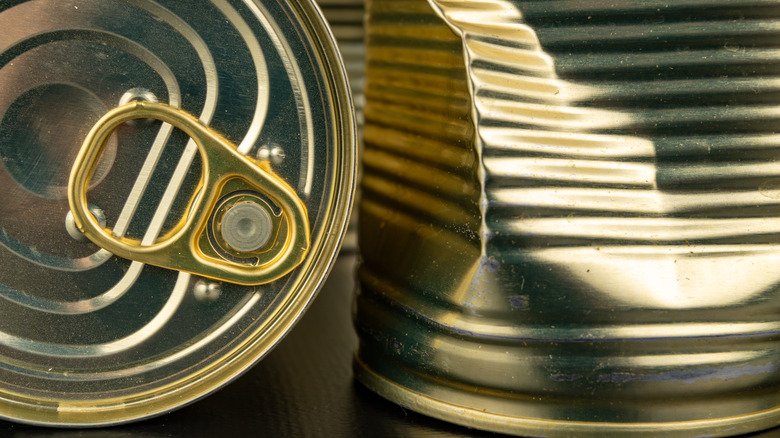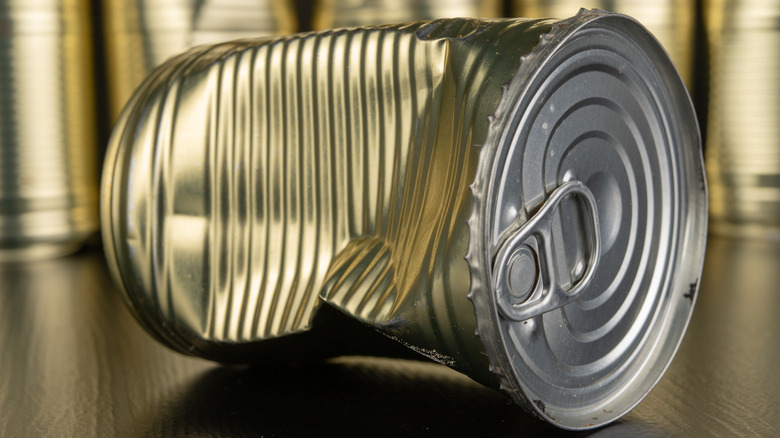Why You Might Want To Think Twice Before Eating From A Dented Can
Though you might think that the worst thing about a dented can of food is trying to open it, you might be surprised about what can be lurking inside if the can is damaged badly enough. According to Suki Hertz, a professor at the Culinary Institute of America, you should always examine and consider the extent to which the can is damaged (via Reader's Digest).
Cans that are not badly dented are likely fine. But cans that have been dented or damaged to the point of having severe bends, cracks, or even broken seals, should never be consumed. As Hertz explained to Reader's Digest, "if you have a dent and [the] dent is on the seam, you've broken the anaerobic condition of the can. Now pathogens can get in." That is definitely not something anyone should risk. "It could cause a food-borne illness," said Hertz. And the United States Department of Agriculture agrees.
This is what the USDA says about dented cans
According to the USDA, you shouldn't even taste-test food that's in a can with a broken seal or crack that has exposed food to potentially harmful bacteria. That includes cans that are leaking, bulbous, and those with questionable lids. And if you can smell that the food is bad, you also should toss it immediately. The trouble is that cans that fit this description could have "Clostridium botulinum," a bacteria that can be deadly in even the smallest of amounts.
To avoid such a troublesome toxin, you should regularly inspect your stock of canned goods, particularly those with any kind of dents or damage. Also, take into account when you bought the cans as well. The USDA recommends that consumers should eat low-acid canned foods within two to five years of buying them, while those with higher acid content should be consumed no later than 18 months after purchase.
So, rethink before eating from a dented can the next time you find one in your pantry. It just might save you a lot of health issues.

